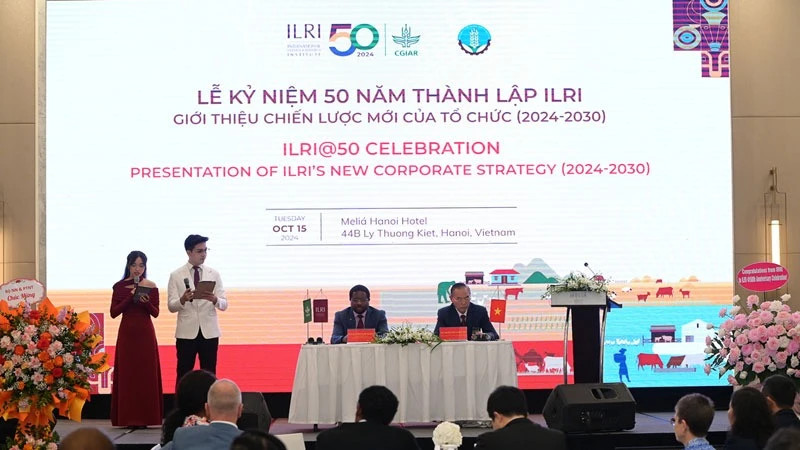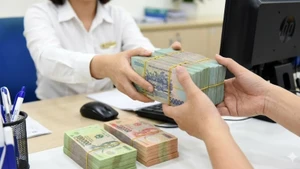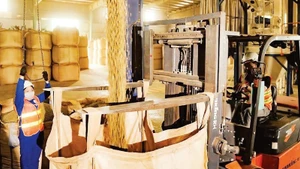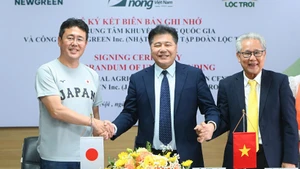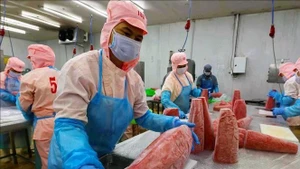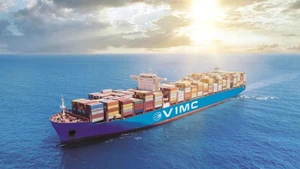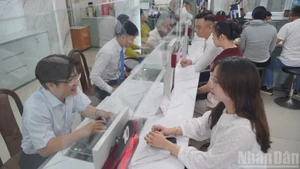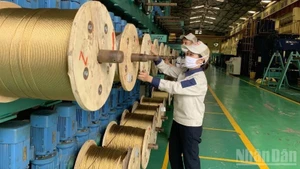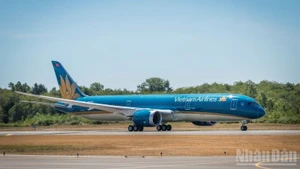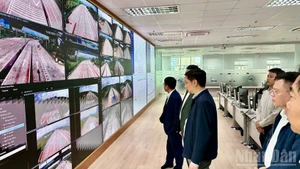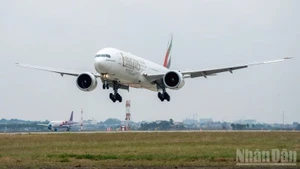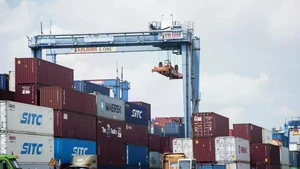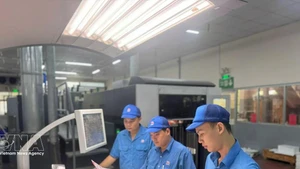The ceremony was held in Hanoi on the afternoon of October 15, with the participation of Deputy Minister of Agriculture and Rural Development Phung Duc Tien and Professor Appolinaire Djikeng, Director-General of ILRI.
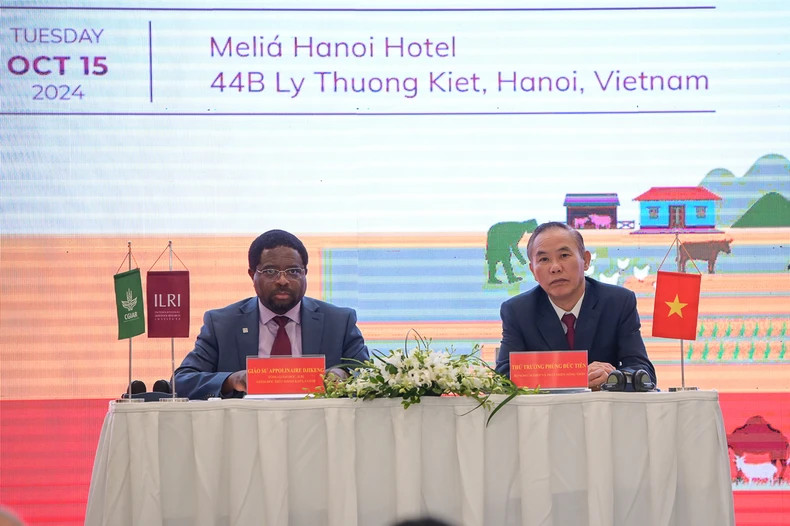 |
Since 1999, ILRI has partnered with Vietnam’s livestock sector, implementing significant research projects, ranging from food safety and animal health to climate change and sustainable livestock production. In 2006, ILRI officially established an office in Vietnam, focusing on food safety, animal health, One Health, and improving livestock productivity.
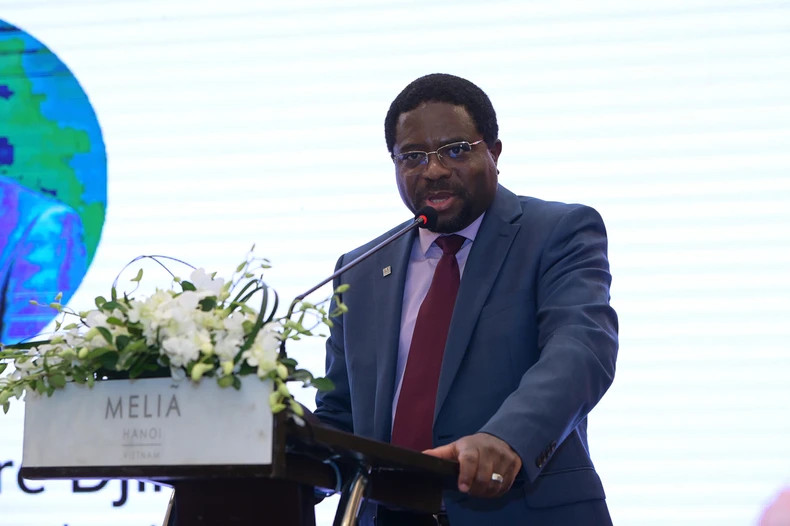 |
Speaking at the ceremony, Professor Appolinaire Djikeng emphasised that the new strategy represents ILRI’s commitment to addressing global issues through innovation, providing scalable and locally adapted sustainable livestock solutions, and promoting policy changes and targeted investments to improve livelihoods while protecting the environment.
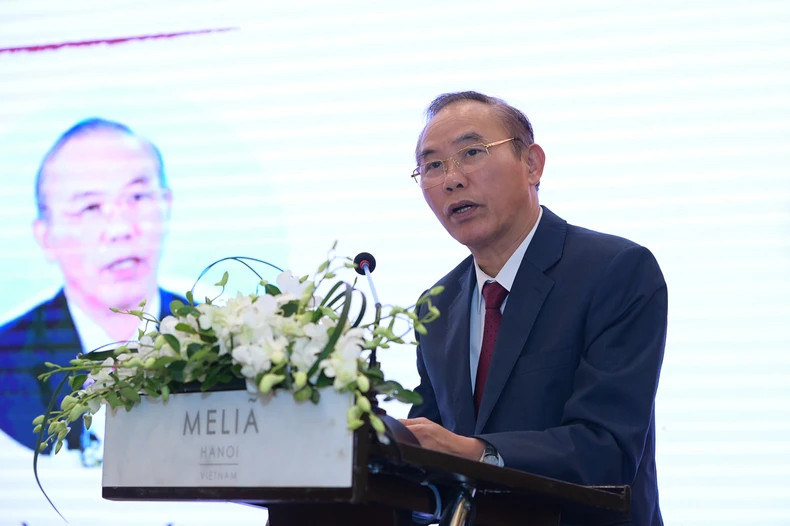 |
On behalf of Vietnam’s Ministry of Agriculture and Rural Development, ILRI’s key partner, Deputy Minister Phung Duc Tien warmly congratulated the entire leadership, staff, and scientists of ILRI and the CGIAR system for their contributions to ILRI’s global success, particularly in Vietnam in recent years. The Deputy Minister affirmed that the Ministry is committed to continuing its partnership with ILRI, alongside both domestic and international partners, to achieve practical outcomes that ensure better livelihoods for people, better animal health, and environmental protection, not only for Vietnam but globally.
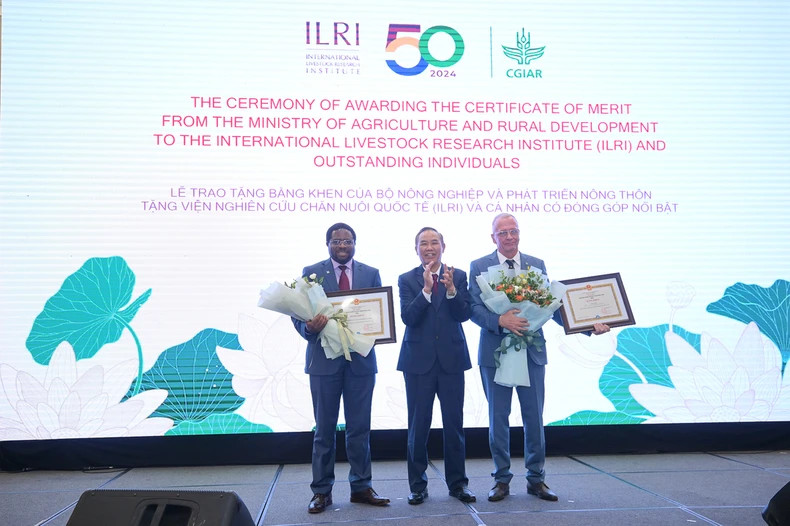 |
In recognition of the contributions made during their 25-year collaboration, Deputy Minister Phung Duc Tien, on behalf of the Ministry of Agriculture and Rural Development of Vietnam, presented Certificates of Merit to the ILRI and Dr. Fred Unger, ILRI Regional Representative for Asia, for their contributions to the development of agriculture and rural areas.
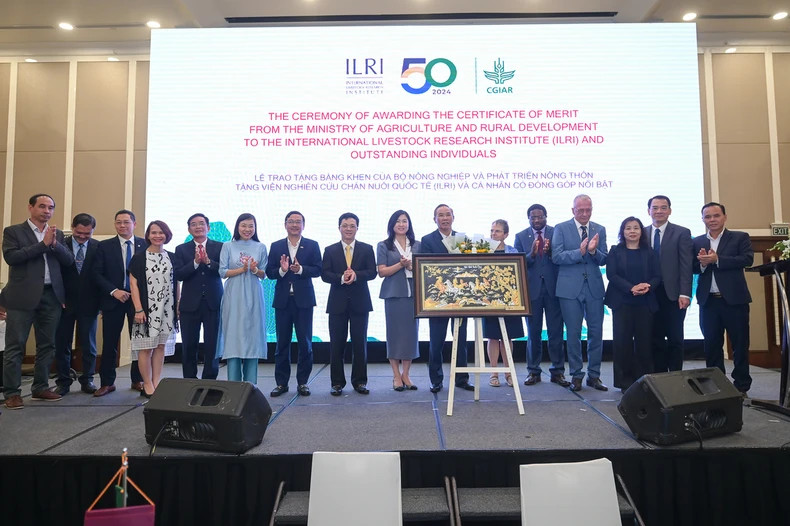 |
As a centre under CGIAR, ILRI will enhance cooperation with global development organisations, leveraging Industry 4.0 technologies and the strengths of various stakeholders, particularly the Vietnam’s Ministry of Agriculture and Rural Development -a ILRI’s strategic partner - and government agencies from central to local levels. Together, they will seek resources to implement the Sustainable Livestock Development Strategy in Vietnam in the period 2024-2030, aligning with the priorities and tasks of Vietnam’s livestock sector and the United Nations’ Sustainable Development Goals.
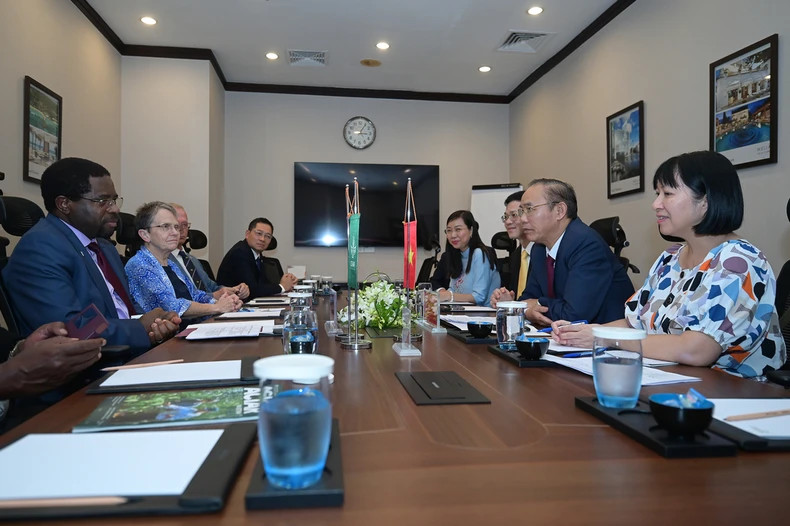 |
According to Deputy Minister Phung Duc Tien, Vietnam’s Ministry of Agriculture and Rural Development is honoured to be chosen as ILRI’s research and investment hub in the region. He expressed confidence that ILRI’s potential and strength in capacity building and applied scientific research would contribute to sustainable food systems, animal health, and climate change response.
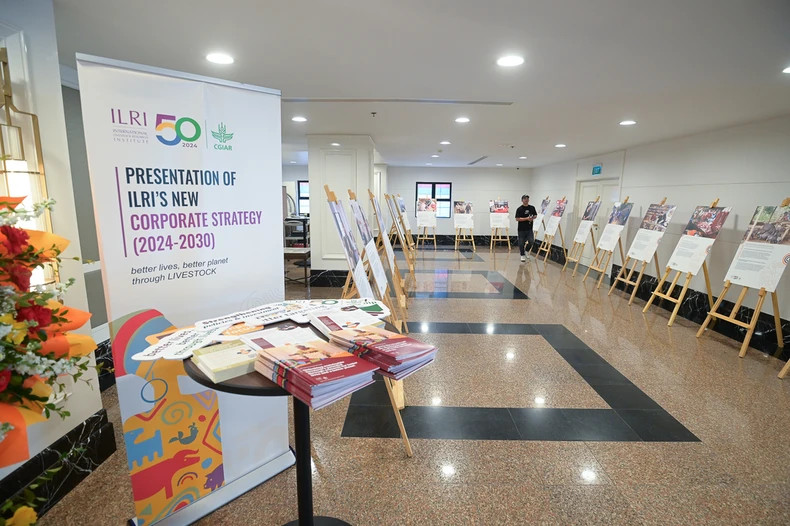 |
On this occasion, ILRI reflected on the achievements, lessons learned, and future directions for sustainable livestock cooperation with Vietnam through the Strategy “Unlocking sustainable livestock’s potential through research for better lives and a better planet” in the 2024-2030 period. The Strategy aims to address global challenges such as climate change, food insecurity, and sustainable development by improving ILRI’s livestock systems in Africa and Asia, with the goal of improving the livelihoods of 300 million people in low- and middle-income countries.
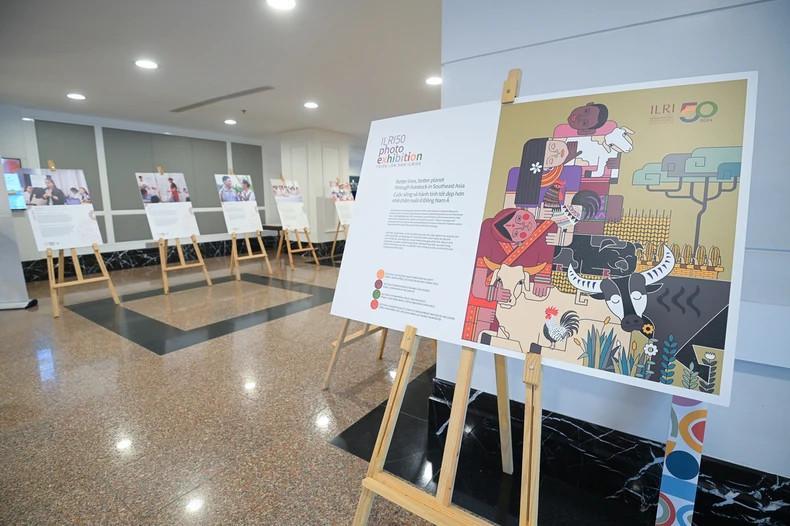 |
The Strategy aims to design and implement science-based sustainable livestock solutions at scale, using science to shape policy decisions and investments that deliver large-scale impacts in the region and within the livestock sector of target countries, including Vietnam.
In Vietnam, ILRI’s projects have helped enhance scientific capacity and made positive contributions to the development of Vietnam’s livestock sector as it integrates into the international market, meets increasing market demands, and overcomes technical and quality barriers for the import and export of livestock products.
